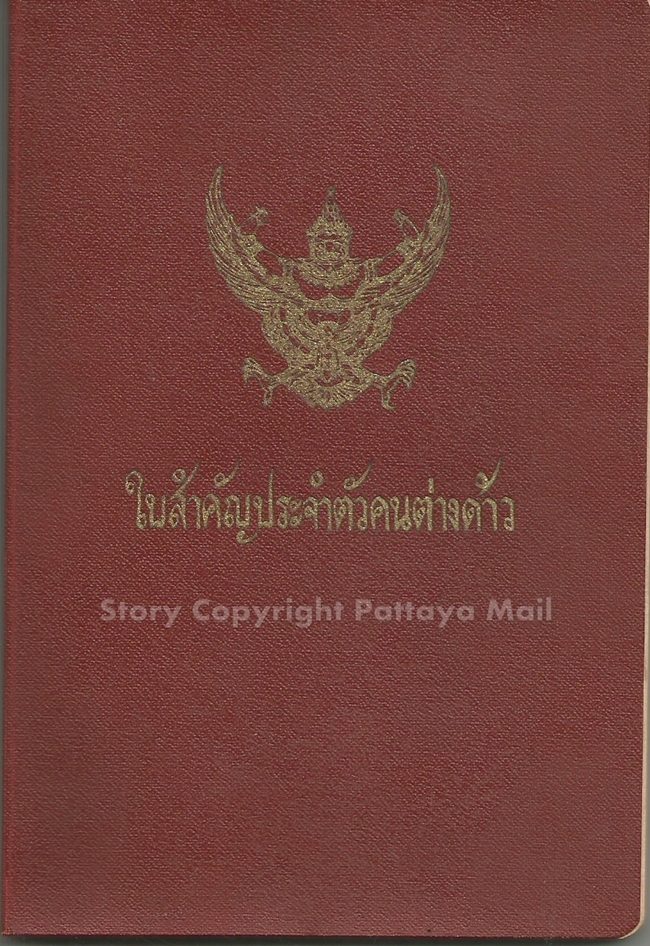
Although the government agency has now confirmed that “permanent residents” rather than “residents” stranded abroad can apply to come back to Thailand, there continues to be considerable confusion about the terms. It’s all about vocabulary.
You know a permanent resident when you meet one. He or she has an alien book (commonly known as a police red book) issued by a police station and not by the immigration bureau. A permanent resident has no end date when he or she must leave the country or apply for an extension of stay. These lucky people can stay here forever, although they do need a re-entry permit to leave Thailand.
If you are not a permanent resident today, you won’t be one any time soon. Applications are accepted only at a certain time of the year, are subject to quotas and fees, take years to process and involve close monitoring by several government agencies. A typical permanent resident will have worked legally in Thailand for several years and/or have served the Thai state in some very worthy role. Speaking Thai and being able to sing lustily the national anthem will help greatly.
Confusion has occurred because of Thai-English translation issues. Many foreigners have taken the common sense but erroneous view that a “resident” is someone who has decided to stay here and settle down. The Elite visa, which allows a stay of between 5 and 20 years in return for a non-returnable cash injection between 500,000 baht and one million baht plus, often advertises itself as a residency entitlement. But it is not. Holders have to renew the extension every three months by visiting the immigration bureau or by leaving the country. This is not permanent residency under Thai immigration law.
The same is true of one year extensions of stay for retirees aged over 50, issued by the immigration bureau, unless they also have a Thai wife or dependants in which case they might be covered by the separate clause which allows foreigners with Thai spouses to come back to Thailand. Some foreigners have suggested that the letter given out by immigration offices and called a “certificate of residence” might do the trick. No. This document only verifies your stated address at that moment in time when you apply for a driving licence or open a bank account. Clever idea, but doesn’t fit the bill.
Several enterprising foreigners have suggested that residency is proved if you obtain a “yellow house book” certifying that they live at a named property, or if you own a condominium in your own name or even if you have a 30 year lease on a property and will have dropped off your perch long before that. Sorry, but it’s no again. Owning property or remaining loyally in your address does not bestow residency in this visa context.
The government has now clarified which groups of foreigners can apply to return to Thailand. Apart from permanent residents, they include diplomats, teachers, students, those with a Thai spouse, air crew, business people both long and short term and that delightful expression “medical tourists”. However, the latter group are not people booking an appointment at a Thai clinic for a new set of false teeth, but those requiring attendants or carers. Cosmetic surgery might be OK too, provided it’s expensive of course.
If you believe you are included, or might squeeze into, one of the selected groups, the procedure is to make an application at the Thai embassy where you are based and prove your precise situation with as many documents as you can muster. But don’t forget to bring also your USD100,000 worth of medical insurance, including but not restricted to Covid-19, recent medical proof you are free of disease and be ready to sign a paper that you will likely be subject to Thai quarantine for two weeks in a very nice hotel and wholly at your own expense. If the Bangkok authorities agree, the embassy will then issue you with a certificate of entry to add to your voluminous portfolio. Only then will you be able to travel to the airport with confidence.
And then there are the upcoming tourist travel bubbles to specified Thai destinations. Nobody yet knows for sure when they will start or who can enter them, but apparently for a vacation of under a fortnight. But you can be absolutely sure that Americans, the Brits and Europeans will not be included until the virus over there is “under control”. Keep calm and carry on.
 |
 |
 |





